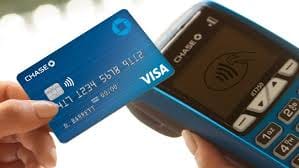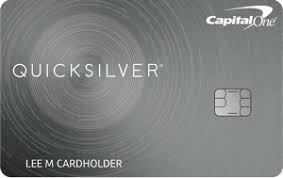10 Secrets Credit Card Companies Don't Want You To Know
Credit card expert provides insight on the top 10 secrets credit card companies don't want you to know.

Why Trust Us?: Salt & Pepper Finance is an independent expert publication– we don’t bend to affiliates like those other blogs. Our experience and suggestions are our own and not fueled by anyone else (or their money). Plus, we’re people– we have been in debt and made it to the other side. We grew up where money was a taboo topic and we want to help answer the questions that are real, but not commonly discussed. For more info read our About Us page. If you’d like to help our cause please consider joining our free newsletter.
Ok, I have been a credit card writer for multiple major publications for the past two years. And have been using credit cards for even longer. If I’ve picked up anything from my time on the “inside” is that there are some hidden gems that many publishers and credit card issuers don't promote.
Why? Well…. money.
They are a business after all. Publishers only get paid when you apply and get approved for a credit card. Card issuers only earn big bucks from your annual fee charge and/or the interest they get from you not paying your full balances. Lucky for you I have the inside scoop on what your credit card companies don’t want you to know.
You Can't Use Points Or Rewards As A Payment Replacement
My husband (bless his heart), cashed in our points – about $200 worth and applied it to our account. To his surprise, he noticed that we still had a “balance owed” for our minimum payment due. Unbeknownst to him, even if you cashed in your cash back for a statement credit you still have to make a minimum payment each billing cycle.
While it might feel like a win to cash in your points or cash back for a statement credit, lowering your overall bill, remember this doesn't replace your minimum payment. Even with a reduced bill, if you owe a minimum payment each month, that obligation remains.
It's a subtle distinction, but an important one. Essentially, redeeming rewards can ease the financial load but doesn't exempt you from your regular payment duties.

Cards with Annual Fees Are (Almost) Never Worth It
Debate me if you want but this is my professional expert opinion. Credit cards that charge an annual fee is almost never worth it.
The common belief that cards with annual fees are a financial misstep is worth examining closer. Sure, at first glance, shelling out yearly for the privilege of spending might seem counterintuitive. Yet, it's not a universal truth. For individuals who leverage the full suite of benefits (think travel perks, high rewards rates, and exclusive offers), these cards can actually be quite cost-effective.
The key lies in assessing whether you'll use the card's offerings enough to offset the fee. It's a matter of personal finance math—do the perks significantly outweigh the cost? If not, a no-fee card might be your financial ally.
Cash-Back Credit Cards Are Better Than Most Travel Rewards Credit Cards

Choosing a travel rewards card versus a cash-back rewards card is like taking cold hard cash and buying a gift card to Target. Sure, it's still money, but now it's restricted. This is where cash-back cards shine, offering flexibility and straightforward value.
Unlike travel rewards, which often come with blackout dates and complex redemption processes, cash back is as good as cash in your pocket, ready to be used whenever and however you see fit.
However, there are instances where this comparison doesn't hold water:
- Frequent travelers: For those who travel often, the benefits of a travel rewards card—like free checked bags, airport lounge access, and accelerated points on travel purchases—can far outweigh those of cash-back cards.
- Specific loyalty programs: If you're loyal to a specific airline or hotel chain, the perks associated with their branded credit cards can offer value far beyond what you'd get with cash back.
- Bonus categories: Some travel cards offer spectacular returns on everyday spending categories, not just travel, making them more versatile than they first appear.
- Sign-up bonuses: Often, the introductory offers on travel rewards cards are substantially higher than those on cash-back cards, providing a hefty initial boost to their value.
In these scenarios, the tailored benefits of travel rewards cards might just tip the scales in their favor, proving that one size does not fit all in the realm of credit card rewards.
Some Rewards Expire
For all of my Sam's Club Mastercard holders and pretty much every retailer credit card user, it's crucial to check for reward expiration dates. Unlike some more flexible credit card rewards programs, retailer-specific cards often come with points or cash-back rewards that have a shelf life.
To find out if and when your credit card points or rewards expire, start by diving into the terms and conditions of your rewards program. This information is usually detailed in the fine print or FAQs on the credit card's official website. You can also directly contact customer service for clear details on expiration policies.
By "retailer cards," I'm referring to credit cards issued by retail stores, like the Best Buy credit card, Home Depot credit card, etc. These cards are designed to encourage loyalty and frequent shopping at the issuing store by offering rewards, discounts, or special financing options. However, the rewards you earn with these cards often come with limitations, including expiration dates, making it all the more important to stay informed and use them wisely before they vanish.
Pre-approvals Are Your Best Friend
Navigating the credit card application process can be a bit like finding your way through a maze. Here's a tip: pre-approvals can act as your compass. Many credit card companies and banks offer the chance to see what you've been pre-qualified or pre-approved for, often with just a soft pull on your credit.
This is a big deal because it saves you from a hard inquiry, which can linger on your credit profile for a minimum of two years. A soft pull, on the other hand, lets you peek at your approval odds without the same impact, keeping your credit score more intact as you shop around for the best credit card options.
The Best New Card Offers Happen In Q4
We've all seen the promotions—new card members get enticing bonuses like "$200 in cash back after spending $2,000 in the first 3 months." Interestingly, these offers tend to get even juicier in the last three months of the year, Q4.
Credit card issuers ramp up their efforts to attract new customers before the year closes, making it an ideal time for you to look for exceptional deals and sign-up incentives. If you're in the market for a new credit card, timing your application for this period could land you some of the year's best rewards.

You Can Negotiate Your Payment Deadline
Life doesn't always go according to plan, and credit card companies understand that. If you've fallen on hard times, reaching out to your credit card issuer could be a wise move. Many companies are willing to discuss your situation and may offer solutions like a grace period, adjusted payment plans, or even a temporary reduction in your interest rate.
It's in their interest to help you manage your account responsibly, so don't hesitate to negotiate your payment deadline or seek other forms of assistance. Open communication is key, and you might be surprised at the flexibility available to help you navigate through tough financial periods.
Ask For A Credit Limit Increase At Least Once A Year
One strategic move in managing your credit card is to request a credit limit increase at least once a year. Why? First, it can improve your credit utilization ratio—a key factor in your credit score—by giving you more available credit that, if unused, positively impacts your score. If your issuer doesn't bump up your limit automatically, taking the initiative can signal your interest in managing credit responsibly.
Plus, if you've received a significant raise, like a new job or promotion, updating your income information can make a strong case for increasing your limit. Just remember, some issuers may perform a hard pull on your credit report to evaluate your request, so it's wise to ask about their process first.
Cash Advances Are A Joke
When you're in a pinch, a cash advance from your credit card might seem like a quick fix, but it's a costly one. Cash advances come with high APRs—often much higher than the card's rate for purchases—and the interest starts accruing immediately, with no grace period.
This means you're paying a premium for the convenience of accessing cash. And, there's usually a fee involved, either a flat rate or a percentage of the advance. When you add up the high APR and the immediate interest charges, it becomes clear that cash advances should be a last resort.
Only Hold A Balance If You Have 0% Introductory APR
Carrying a balance on your credit card can be a strategic move if—and only if—you're benefiting from a 0% introductory APR offer. This period allows you to make purchases or transfer balances without accruing interest, a valuable tool for managing large expenses or consolidating debt. However, outside of these offers, holding a balance becomes costly.
With average APRs for credit cards hovering around 25% or more, even for those with good credit, the interest charges can rapidly inflate the amount you owe. It's a stark reminder that unless you're under a 0% APR promotion, the cost of carrying a balance can quickly outweigh any benefits of convenience or rewards, making full payment each month the financially smart choice.




Comments ()